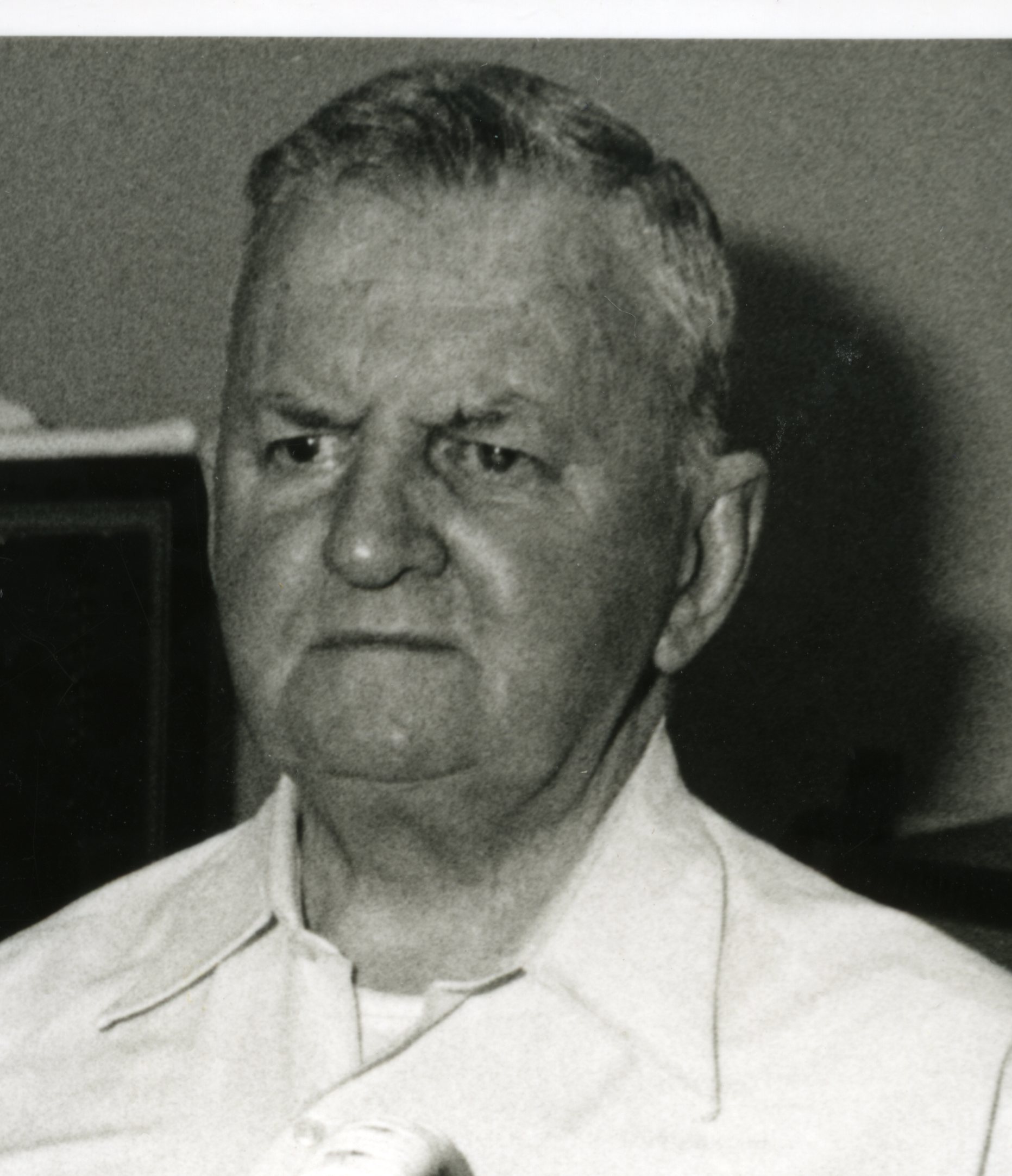Billie Sinclair
Billie Sinclair
William ‘Billie’ Sinclair was born in Glasgow, Scotland in 1918.
He was proud to be a Scotsman and would love telling people that he was Scottish. When he was two, his parents came to Australia on the steamer Megantic with 1,200 Australian soldiers, wives and children, arriving in Sydney in February 1920. It was during the voyage that Billie contracted measles which left him profoundly deaf and with poor eyesight.
In 1923, at the age of five, Billie began at the deaf school in Darlington. At ten years old, he lost his vision in both eyes from being injured by a bookcase which fell on him. He continued his education learning Braille and Fingerspelling which led him to develop a love of reading.
On leaving school at 17 in 1935, his first job was at the blind workshop where he was employed weaving mats for the Army and Navy during the army, then after the war weaving baskets and finally stitching plastic laundry bags for hospitals. It was his basket making skills that he used later in his life to support himself.
As a deafblind person, he was an important part of deafblind history, being one of the founders of DeafBlind Association (NSW) and involved in naming the ‘Hand Over Hand Club’ and ‘Rainbow News’. However, his greatest love was travelling, and for this he was famous. He said that he felt like an uncaged bird when he flew on airplanes. His first overseas trip was in December 1980 with a good friend to America, England, Scotland and Singapore. After that, he travelled to many different places including South East Asia and Europe. His overseas trips became legendary and have been the subject of television documentaries.
Billie Sinclair died two weeks after his 87th birthday in 2005. He was an inspiration to all who knew him. The 1988 ABC Film ‘The Journey’ of his life and trip to Japan was a wonderful memorial to his endurance and love of life.
Sources
The Silent Messenger 2005 Winter edition
The DeafBlind Association NSW newsletter March 2005
Rainbow News March 2005
Ancestry databases
Sydney Morning Herald 24 February 1920 TROVE
National Archives of Australia war service records
